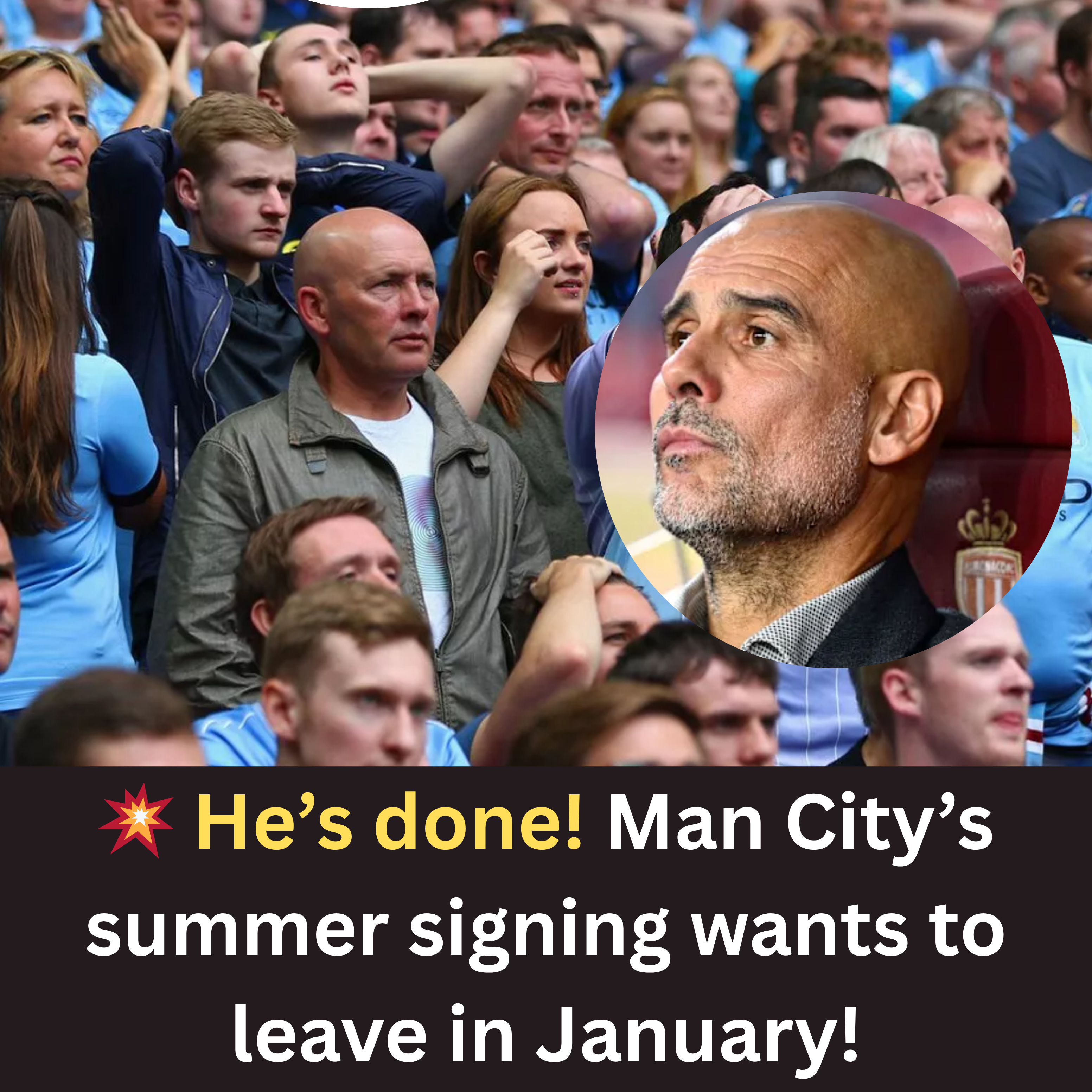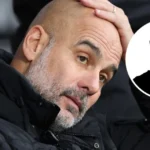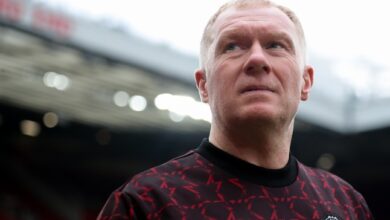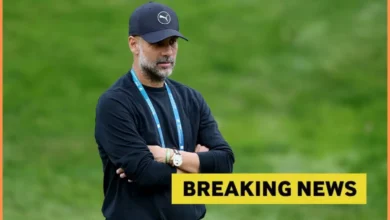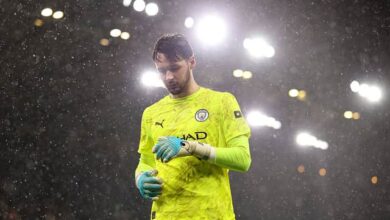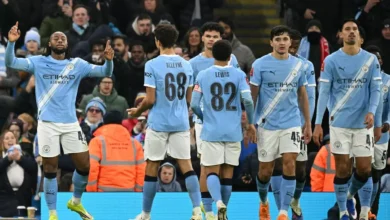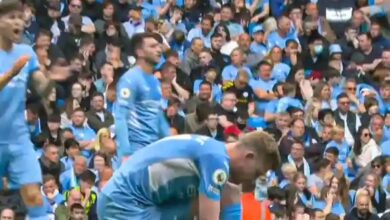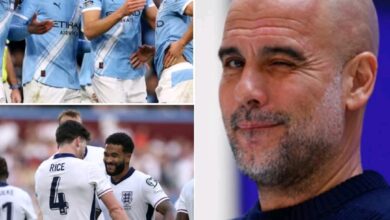BREAKING NEWS: Manchester United Part Ways with Ruben Amorim: A Season in Crisis
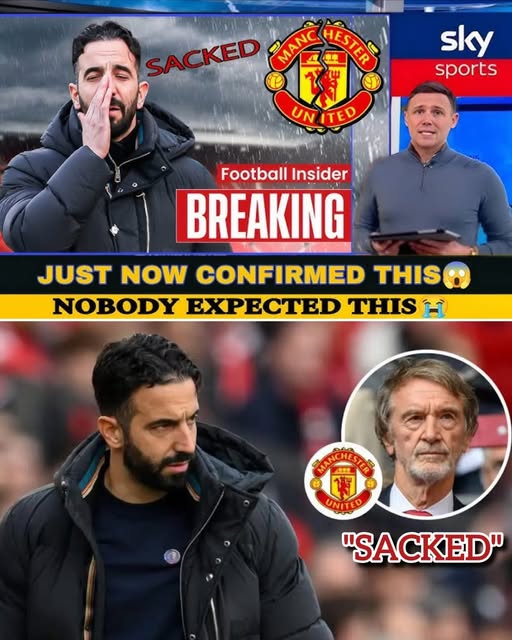
In a seismic development that has sent shockwaves through the football world, Manchester United have officially terminated the contract of head coach Ruben Amorim following a disastrous five-month tenure that has left the once-mighty club languishing in the bottom half of the Premier League table. The Portuguese tactician’s dismissal comes in the wake of a humiliating 4-1 defeat to Newcastle United at St. James’ Park – the final straw for a United board that had been growing increasingly concerned about the team’s alarming trajectory.
Amorim, who arrived at Old Trafford in November 2024 amid considerable fanfare following his impressive work at Sporting Lisbon, departs with a record that will go down as one of the most disappointing in Manchester United’s recent history. During his 10-match Premier League stint, Amorim managed just four victories, alongside two draws and four defeats – a meager return of 14 points from a possible 30 that has left the 20-time English champions in 14th position, merely seven points above the relegation zone.
The 39-year-old’s appointment had initially generated excitement among the United faithful, with many viewing him as a progressive, tactically astute coach capable of implementing a more coherent style of play. However, the reality proved dramatically different, as Amorim struggled to translate his tactical philosophy to a squad that appeared increasingly disjointed and devoid of confidence with each passing match.
“Manchester United can confirm that Ruben Amorim has left his role as first-team manager with immediate effect,” read the club’s official statement. “The decision, while difficult, has been made in the best interests of the club’s short and long-term ambitions. We thank Ruben for his efforts during his time with us and wish him well for the future.”
In retrospect, there were warning signs from the outset. Amorim’s insistence on implementing his trademark 3-4-3 formation – the system that had brought him such success at Sporting – immediately revealed significant teething problems. United’s defenders appeared uncomfortable in the three-man backline, while the midfield frequently found itself overrun against teams employing more conventional 4-3-3 or 4-2-3-1 formations.
Former United defender Gary Neville, speaking on Sky Sports following the announcement, highlighted this tactical inflexibility as a critical factor in Amorim’s downfall: “What worked at Sporting simply didn’t translate to the Premier League, and the worrying thing was his reluctance to adapt. When Plan A wasn’t working, there didn’t seem to be a Plan B. In the Premier League, that’s football suicide.”
Perhaps most concerning was Amorim’s inability to arrest the team’s defensive frailties. Under his stewardship, United conceded an alarming 22 goals in 10 league matches – the worst defensive record of any Manchester United team in the Premier League era over a comparable period. The Newcastle debacle, where United’s backline was repeatedly carved open with alarming ease, merely represented the culmination of ongoing defensive issues that Amorim had proven unable to resolve.
Sources close to the club have indicated that Amorim’s relationship with several key players had deteriorated significantly in recent weeks. His handling of club captain Bruno Fernandes raised eyebrows when he dropped his compatriot for the critical clash against Liverpool in February – a decision that reportedly created tension within the dressing room.
Similarly, Amorim’s treatment of summer signings Matthijs de Ligt and Joshua Zirkzee drew criticism, with both players publicly expressing frustration at being utilized in unfamiliar roles that failed to maximize their strengths. De Ligt, signed as a center-back, found himself deployed as a right-sided defender in Amorim’s three-man defense, while Zirkzee was often isolated as a lone striker in a system that provided him with minimal service.
Perhaps most damaging was Amorim’s fractious relationship with mercurial winger Antony. The Brazilian, who had shown signs of resurgence under the previous management, was effectively frozen out under Amorim, making just three substitute appearances despite the team’s obvious need for creative spark. This apparent personal clash further undermined squad harmony and deprived the team of a potentially valuable attacking option.
Amorim’s departure represents yet another expensive miscalculation for the Manchester United hierarchy. Having paid Sporting Lisbon a reported £12 million in compensation to secure his services, the club now faces the prospect of a substantial severance package for the departing coach, who signed a three-and-a-half-year contract just five months ago.
This financial blow comes at a particularly challenging time for United, with recent financial reports indicating a significant drop in commercial revenue following the team’s failure to qualify for this season’s Champions League. Industry analysts estimate that Amorim’s brief tenure, including compensation, salary, and severance, may have cost the club in excess of £20 million – a staggering sum for what amounts to just 19 matches across all competitions.
The decision to dismiss Amorim was reportedly not unanimous among United’s leadership team. According to club insiders, Sporting Director Dan Ashworth had advocated for granting the Portuguese more time, arguing that any manager would struggle to implement significant change mid-season. However, INEOS CEO Sir Jim Ratcliffe, who acquired a 25% stake in the club in December 2023, is understood to have been increasingly alarmed by the team’s performances and pushed for immediate action.
The news of Amorim’s departure has generated mixed reactions among the Manchester United faithful. While few would argue with the assessment that results under his guidance had been unacceptable, many supporters have expressed frustration at what they perceive as institutional instability at the club.
“It’s the same cycle repeating itself,” said Mark Wilson, chairman of the Manchester United Supporters’ Trust. “Hire a manager with great fanfare, fail to provide adequate support, sack them when results inevitably disappoint, then start the whole process again. At some point, the focus needs to shift from the dugout to the boardroom.”
This sentiment was echoed across social media, where the hashtag #GlazersOut once again trended despite the family’s reduced influence following the INEOS investment. Many supporters view Amorim as merely the latest victim of a dysfunctional sporting structure that has seen five permanent managers come and go since Sir Alex Ferguson’s retirement in 2013.
Nevertheless, the atmosphere at Old Trafford had grown increasingly toxic in recent weeks, with audible chants against Amorim during the home defeat to Crystal Palace last week. The level of discontent among match-going supporters suggests that, while fans may question the broader direction of the club, few will mourn Amorim’s departure specifically.
Manchester United have confirmed that assistant coach Ruud van Nistelrooy will take charge of the team on an interim basis, beginning with Thursday’s Europa League clash against Feyenoord. The former United striker, who returned to the club as part of Amorim’s backroom staff, is a popular figure among supporters and may provide a short-term lift to morale.
However, the search for a permanent successor is already underway, with several high-profile names being linked with the positi
